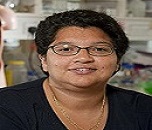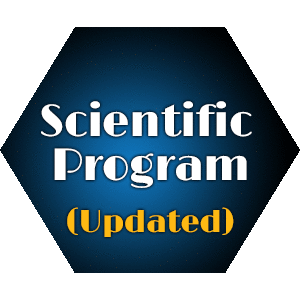
Silvia Melgar
APC Microbiome Ireland - University College of Cork, Ireland
Title: The influence of diet, bacteria and bacterial metabolites on epithelial cell responses in intestinal inflammation and cancer
Biography
Biography: Silvia Melgar
Abstract
Westernized diet, defined by high contents of saturated fats and sucrose, is associated with the development of several diseases including metabolic syndrome, obesity and cancer. Intestinal inflammatory responses are mediated by a complex crosstalk between the environment, microbiota and the immune system. Alterations in any of these systems can lead to development of gastrointestinal conditions such as inflammatory bowel diseases (IBD). Triggering factors for IBD and colitis-associated cancer (CAC) include environmental factors (e.g. stress), gut microbiota composition and diet. Recent
reports indicate that a specific pathobiont outgrowth in IL-10-/- mice fed with a milk derived fat diet aggravated colitis. Epidemiological data have also identified processed meats and saturated fat as risk factors for IBD and colon cancer. Prebiotics are selectively fermentable ingredients that can change the composition and/or activity of the intestinal microbiota, which can lead to beneficial effects on the host. Short chain fatty acids (SCFAs) are the fermentation products of prebiotic digestion by the colonic commensal microbiota, with the most abundant SCFAs being butyrate, acetate and propionate. SCFAs, especially butyrate, act as source of energy for epithelial cells as well as being immune modulatory and helping dampening inflammation. In this talk, I’ll discuss our findings emanating from in vitro and in vivo studies investigating the effect of diets, bacteria and bacterial metabolites on intestinal epithelial cell responses and in experimental models of colitis and CAC. To date, we have data showing that high fat diets can positively and negatively affect the outcome of colitis and CAC by regulating the microbiota, microbial metabolites and host epithelial and immune responses. In addition, we have generated mechanistic insights on the role of individual SCFAs and IBD-associated pathobionts such as adherent and invasive Escherichia coli (AIEC) on intestinal epithelial cell responses.

